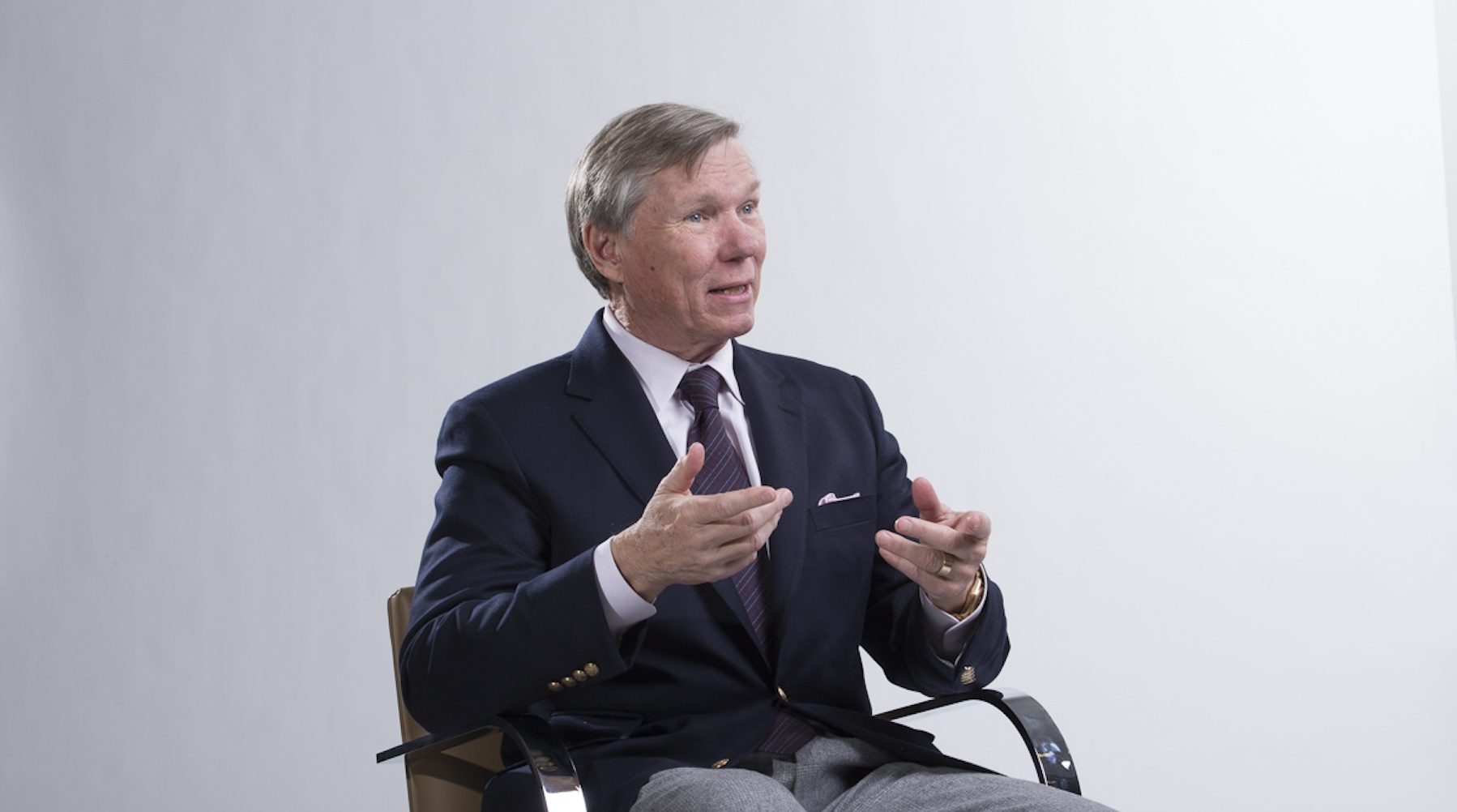The message came in at 8:28 on Wednesday evening.
The caller to the president’s office at the Oklahoma Medical Research Foundation didn’t identify himself on the voicemail he left. But he made crystal clear he didn’t approve of the public health message one of us — Dr. Stephen Prescott — was communicating.
“I’m a free American citizen,” the message began, “and I don’t need some idiot doctor taking away my freedoms.”
Earlier that day, in the wake of Gov. Kevin Stitt’s announcement that he’d tested positive for Covid-19, Dr. Prescott appeared as a guest on a couple of local newscasts. In each, he’d voiced a position that he, along with numerous other scientists and health experts both within and outside of OMRF, had been advocating.
As we all know, mask-wearing has become a hot-button issue. Indeed, the day had dawned with a USA Today op-ed from Peter Navarro, one of President Trump’s advisers, criticizing Dr. Anthony Fauci, perhaps the nation’s best-known proponent of masks.
“Dr. Fauci’s a flake and an idiot and a liar,” the voice message continued, “and so is Prescott. Masks will not stop a virus.”
For many years, we’ve known that the mask you wear protects others from your germs. That’s why surgeons don them — to ensure they don’t infect you during a procedure.
In the early part of the pandemic, health experts debated whether wearing a mask would help stem spread of the virus. But over time, two important pieces of evidence emerged to tip the balance in favor of face coverings.
First, we learned that asymptomatic and presymptomatic people could spread COVID-19. In addition, we’ve seen mounting evidence that your mask also shields the wearer.
So, if you happen to encounter an infected person, your mask acts as a filter, reducing the amount of virus you breathe in. And that turns out to be key, because inhaling a small number of viral particles often leads to no infection or only a mild case of Covid-19, while taking in a large volume of virus has been linked to greater risk of serious disease and death.
“And, oh, by the way, 400,000 people a year die from tobacco. Why doesn’t that hypocrite Prescott talk about that?”
As the former director of a cancer center — and someone who dedicated decades of his career to cancer research — Dr. Prescott has, indeed, spent more time than the caller can imagine warning of the dangers of tobacco. But, regardless, the existence of other threats to health should not weigh on how we respond to the current pandemic. If we can prevent illness and death through simple measures, we should.
The caller followed with a string of ad hominem attacks and a warning that Dr. Prescott had “better shut [his] big mouth about taking away my freedom and liberty.”
As Donald McNeil pointed out in his excellent New York Times piece last week, throughout U.S. history, people have battled almost every public health initiative that ultimately saved lives.
In the name of freedom, they fought sewers, “arguing that they owned perfectly good wells and cesspools.” They refused smallpox vaccinations. During the Spanish flu pandemic of 1918-19, thousands of San Franciscans formed an Anti-Mask League (and the mayor even paid a $50 fine for violating his own health department’s order).
When we’ve stood at these crossroads in the past, science eventually prevailed. And when it did, death rates declined.
So now, we’re once again faced with a choice.
The caller made his pick known: “I’m prepared to die for my freedom!”
He didn’t mention his family. Or his neighbors. Or the people in his community he might encounter in his grocery store or church.
How do they feel about potentially being exposed to his germs? Are they prepared to die for his freedom?
If we’re going to tame this virus, we all need to do our part. Yes, it requires sacrifice and a temporary surrender of some personal liberty. But the rewards will be ample.
We’ll protect our neighbors and loved ones from a life-threatening virus. We’ll help bring an end to this pandemic. And just think about all the freedom that will bring.



